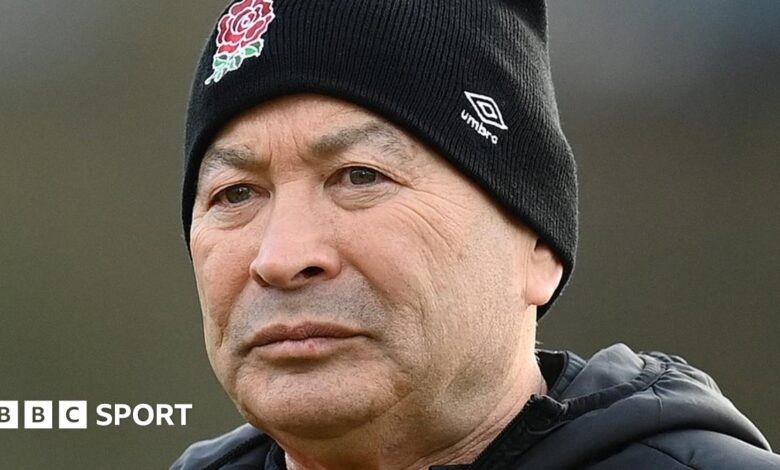Six Nations: England’s honesty sessions and Eddie Jones’ new focus on psychology

England rarely look vulnerable in Italy.
They have played away to the Azzurri three times under Eddie Jones, racking up 17 tries, 40 points a game and a trio of emphatic wins.
Only once in the land of the ancient Romans have the chariot wheels wobbled. Treviso, 2019.
A little over a month before the Rugby World Cup, Jones’ carefully laid plans were teetering like a getaway bus over a cliff edge.
On a team bonding night out, verbal sparring had escalated to full-blown fighting. Full-back Mike Brown and centre Ben Te’o were sent home and into Test oblivion by Jones after their altercation.
They left, but the tensions remained. The training camp was as full of emotional hurt as lactic pain.
“At one stage in Italy, it looked like our World Cup preparation was going to blow up completely,” Jones told the Magic Academy podcast of that period. , external
“Players were fighting because all these wounds were open and the players didn’t know how to handle it. But the wounds got healed and the infections got sorted out.”
It was Corinne Reid who had applied the antiseptic.
Reid isn’t interested in rugby. She isn’t interested in sport at all really.
“But I know people,” she told BBC Sport.
“I know how groups and systems work when they work well, and I know what tears them apart.”
The Australian is a clinical psychologist. She started out in child protection, dealing with the big emotions of small people in vulnerable situations.
But a chat over lunch, more than a quarter of a century ago, shot her into a different sphere.
Ric Charlesworth was on the opposite side of the table. He had just begun coaching Australia’s women’s hockey team. And he wanted to change how psychology was used in sport.
At the time, it was very literal. Psychologists would instruct players to visualise scoring the winning points or focus on the sensation of a good tackle. But Reid or Charlesworth wanted to do more.
“At the level of the world’s best, if you haven’t got that nailed already, you’re in trouble,” she said.
“There are practitioners who still work in that more traditional way, but, for me, this is a systems challenge – how to get an ecosystem to be at its best at a very defined moment when you have real complexity, real pressure and extreme individuals.
Source link




